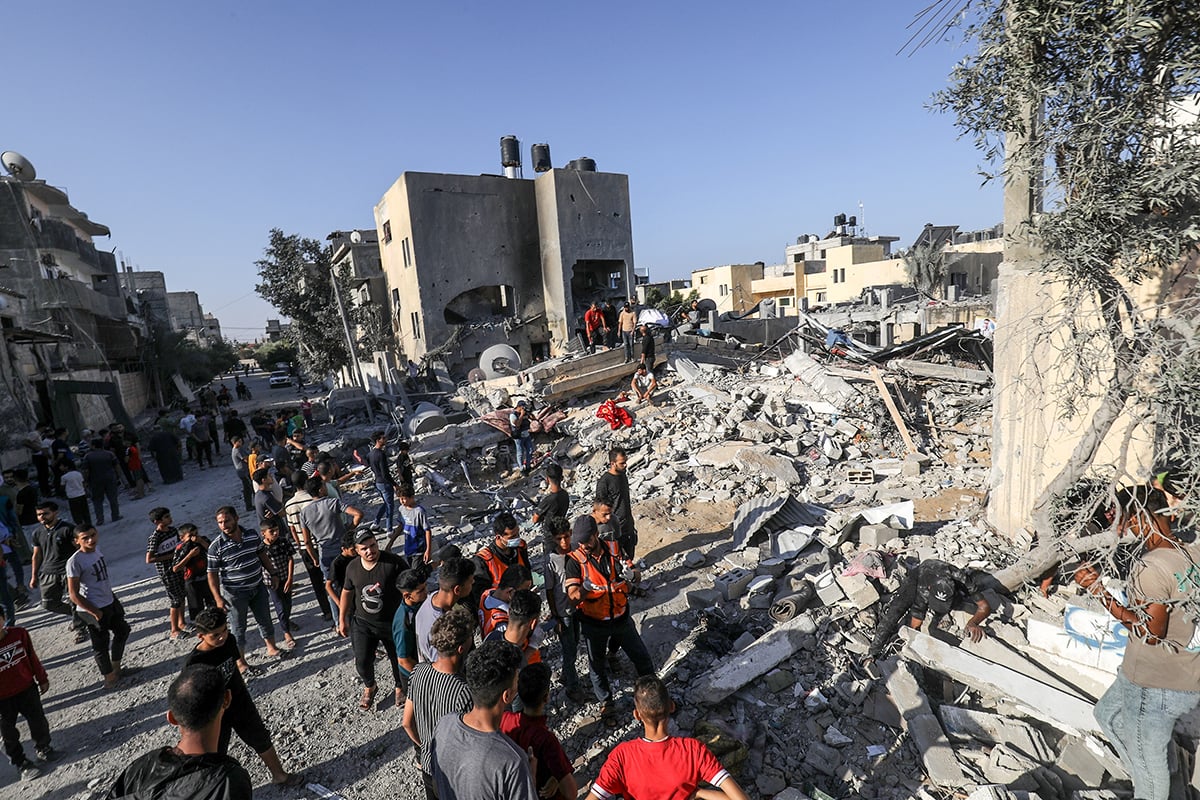The Israeli military has broadened its evacuation warnings to cover additional areas in southern Lebanon, reflecting a wider offensive against Hezbollah forces. On Thursday, Israel advised residents in Nabatieh and surrounding regions north of the Litani River to leave, signaling that the ground operation, initiated earlier in the week, could soon intensify. This follows increased confrontations between Israeli troops and Hezbollah militants along the Lebanese border, where at least eight Israeli soldiers have lost their lives in the latest clashes.
Tensions remain high in Lebanon, particularly in areas beyond the U.N.-created buffer zone, as the conflict between Israel and Hezbollah shows no signs of de-escalation. The buffer zone, established after the 2006 war to curb hostilities, is now a focal point of renewed violence. Both Lebanon and Israel have accused each other of violating U.N. Security Council resolutions, further fueling the conflict, which is now expanding.
Israeli Strikes Target Hezbollah Strongholds
As Israeli ground forces push further into southern Lebanon, civilians in the region are bearing the brunt of the attacks. Israeli airstrikes have hit numerous locations, with Hezbollah strongholds being prime targets. One of the most concerning incidents involved an Israeli strike on a convoy in the village of Taybeh, which wounded four Lebanese Red Cross paramedics and killed a Lebanese army soldier. The convoy, under the coordination of U.N. peacekeepers, was evacuating civilians when it was struck.
In a separate incident, another Lebanese soldier was killed in an Israeli strike on a southern army post, prompting the Lebanese military to return fire. Skirmishes continue across the border as Israel intensifies its operations against Hezbollah.
On Wednesday night, an Israeli airstrike in central Beirut killed nine individuals, including seven first responders with links to Hezbollah. The strike occurred near key government buildings, including the U.N. headquarters and the prime minister’s office, raising concerns about Israel’s reach into the capital. Though rare, Israeli strikes in Beirut, particularly in areas where Hezbollah operates, mark an escalation in the conflict, and the Lebanese government has voiced its alarm over these developments.
Humanitarian Crisis Worsens
The ongoing conflict has led to a growing humanitarian crisis on both sides of the border. Hundreds of thousands of people have already fled southern Lebanon as Israel continues to urge civilians to evacuate. Israeli authorities have instructed residents to move at least 60 kilometers north of the border, past the Litani River. The U.N. Security Council’s Resolution 1701, passed in 2006, originally called for Hezbollah to retreat north of the river, while the Lebanese army and U.N. peacekeepers were tasked with securing the region.
Despite this resolution, Hezbollah’s presence in southern Lebanon remains strong, with military infrastructure still intact. Israel accuses Hezbollah of violating the resolution by amassing military strength in the border area, while Lebanon claims that Israel has breached other terms of the agreement, leading to the current situation.
Broader Regional Conflict Intensifies
The conflict between Israel and Hezbollah is now part of a broader regional crisis. What began with Hamas’ attack on Israel from Gaza nearly a year ago has escalated with Hezbollah’s involvement. In recent weeks, Israel has conducted several airstrikes in Lebanon, targeting Hezbollah fighters and military assets. At least 15 Hezbollah fighters have been killed in Israeli airstrikes in the past week.
Hezbollah has retaliated, claiming responsibility for detonating explosives that targeted Israeli troops entering the Lebanese border village of Maroun el-Ras. While these claims remain unverified, they highlight the intensifying conflict.
As the violence escalates, the region faces growing instability. Iranian-backed groups, including Houthi rebels in Yemen, have launched drone strikes at Israel in retaliation for its military actions. An Iranian missile attack earlier in the week has heightened fears of a wider regional war, with more countries potentially being drawn into the conflict.
While diplomatic efforts are underway, the situation remains volatile, and Israel’s military operations show no signs of slowing. Both Lebanon and the wider Middle East are bracing for further unrest as the conflict continues to expand.







